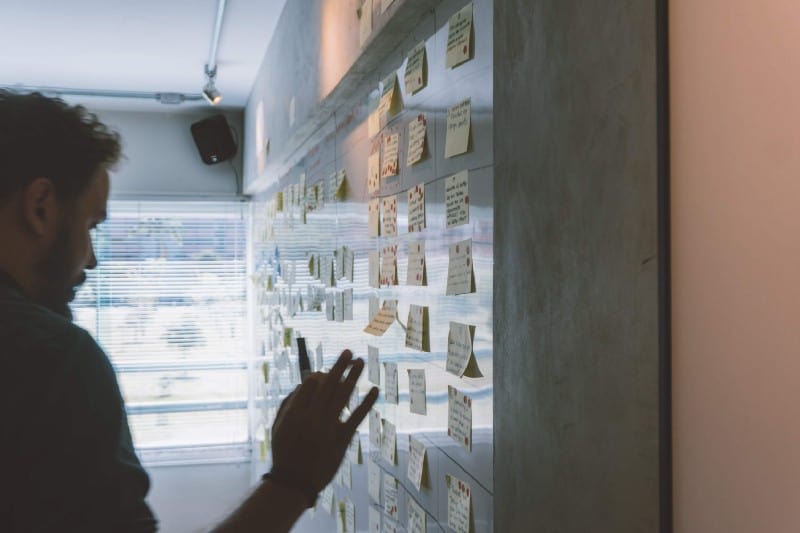INGREDIENTS FOR TRANSFORMATIVE EXPERIENCES

If you are thinking of gathering your team to launch a new initiative, start a new quarter, tackle a big problem, align on a critical decision, develop a new strategy, or you simply want to bring the team together, I recommend leveraging a facilitated workshop. Workshops facilitated by an unbiased 3rd party facilitator allow many voices to be heard, bold ideas to flourish, cultivates broad ownership and elevates your decision-making abilities. Below you’ll see some of my recommendation on how to design great workshops and plan for success.
Articulate Your Purpose & Objectives
All gatherings require a clear purpose especially ones with lofty ambitions such as corporate workshops. In the most simple terms, your purpose is what you are seeking to achieve through the session. When teams go sideways, it is likely due to lack of shared purpose, an ill-defined purpose, or failing to communicate the purpose adequately. If you are hosting a large workshop, it is critical that you define and broadcast your purpose ahead of time. In fact, if you consider purpose while designing your workshop, you’ll elevate the experience exponentially.
For smaller workshops, you can start the workshop with an activity intended to explore the purpose. In these situations, we still recommend that you start with a high-level direction and refine it together. Design Sprints are a great example of purpose-articulation at the beginning of a workshop.
Consider using a small “design” workshop as a tool for planning larger workshops. First, assemble a core design team to articulate your purpose, work through agenda options, and socialize the plan. If you are struggling with articulating your purpose or looking for an activity for your smaller design workshop, I recommend taking a look at Liberating Structures. Nine Whys, Appreciative Interviews, or TRIZ are great tools for deep conversations that will help you reveal your purpose.

Design a Structured Agenda
Without careful planning, the most well-intended workshops will just be fun meetings at best. Using your purpose and objectives as a guide, think through a sequence of activities that will help the team realize their vision. Consider when you might need to leave extra space for novel things to emerge and when you’ll need to intentionally constrain time so that you can get quick results. Always plan for the unexpected. Make sure that your agenda includes enough flexibility to recover from unanticipated delays.

The most engaging programs start with an opening activity to invite the team to the work, followed by one or more exploratory activities, and wrapped up with a closer. This three step structure can be expanded into more complicated variants. For instance, you can repeat these three fundamental steps throughout the day bookended with an opener and closer for the entire day.
Consider using punctuations, energy boosters, or other activities that may not directly relate to the work at hand but will help you in different ways. These tools can play a role in allowing the team to reflect on what they just accomplished, foster inspiration, or merely reset their brains from some profoundly intense work.
Select A Strategic Facilitator
A master facilitator is skilled in numerous methods. This diverse perspective sharpens their intuition and makes them well equipped to respond to the unexpected. When things don’t go as planned, an experienced facilitator has this situational awareness to think on their toes, and if they do their job well, you will not realize they expertly steer you away from the rocks.

Expert facilitators have run countless workshops and have experience in numerous methods. They will provide valuable feedback on your agenda and planned activities. Even when clients come with a pre-decided agenda, facilitators work with the client to tweak and optimize the program.
In addition to keeping things on time, a facilitator also manages the energy in the room and takes care of the humans. It is essential to select a facilitator that meshes with your culture. If your organization, for one reason or another, rejects the personality of your facilitator, you are doomed from the start.
Assemble a Diverse Group
Cross-functional teams will provide the requisite diversity needed to discover novel and revolutionary solutions. Non-matrixed organizations especially benefit from assembling cross-functional teams in workshops, as the organization structure doesn’t encourage these interactions. It is transformative when a workshop brings together two collaborators who have never before worked together. The potential this unleashes is unmeasurable.
Stakeholders from different departments return from the workshop with a sense of ownership and a deep understanding of why decisions where made. They become advocates as they bring this perspective back to their part of the organization. This allows an initiative to spread throughout an entire organization quickly.
Book the Perfect Venue
Whether it’s the conference room in your office or an external facility, put some thought into the type of space and amenities you might need for your workshop. Whiteboards and natural light are always a crowd pleaser. For workshops requiring post-it notes, make sure there is adequate wall space to accommodate your activities and that the wall texture is post-it friendly as post-it notes refuse to stick to some walls!


A neutral off-site location can be beneficial in helping the team escape the distractions of everyday office activity. These distractions include struggling to think in new ways due to their historical association with the environment, general non-workshop office activity, and active interruptions from other co-workers asking for assistance.
Consider how you will organize and arrange the participants in the space as this may impact your venue options. Some venues have fixed seating or may require renting tables and seating. If you have audio video requirements, make sure the venue supports all your plans. Some venues don’t allow outside food and beverage. If you plan to hire a third party caterer or do it yourself, make sure the venue allows it.
Pictures can be deceiving. Always walk the venue in person. Sometimes it simply comes down to how the space makes you feel. Don’t leave it to chance, visit the venue and imagine your workshop taking place in the space. This is not only important, but it is also fun and inspiring as well. You never know what exciting ideas you’ll develop when you are in an inspirational room.
Sweat the Details
Make your list and check it twice. Double check that your space is reserved and dedicated to your team for the duration of the workshop. It is incredibly disruptive when you have to change locations in the middle of a workshop. Stock up on the best supplies. Choosing inexpensive substitutes or not having enough supplies to go around is an amateur move and distracts the team from the work at hand. Order quality brain food. Workshop food should be high in protein and low in sugar. Don’t forget to provide healthy snacking options as well.


Take care of the people. Ask your attendees if they require particular attention. Consider their dietary needs, accessibility, and attention spans. Take the time to properly set expectations with all participants. Provide an opportunity for those who don’t know each other to meet prior to the workshop. Share the agenda, relevant resources, and schedule a kick-off call. Let them all know what they are about to embark on and to expect profound changes.
Taking into account your time constraints, business objectives, and desired outcomes, Voltage Control will work with you to develop a workshop agenda with the right activities and methodologies. There is no shortage of methods these days (Liberating Structures, Design Sprints, Design Thinking, Thinking Wrong, Game Storming, Improv, etc). We collaborate from the very beginning, to understand which methods best suit your needs. Your workshop agenda is tailored specifically for your needs.


